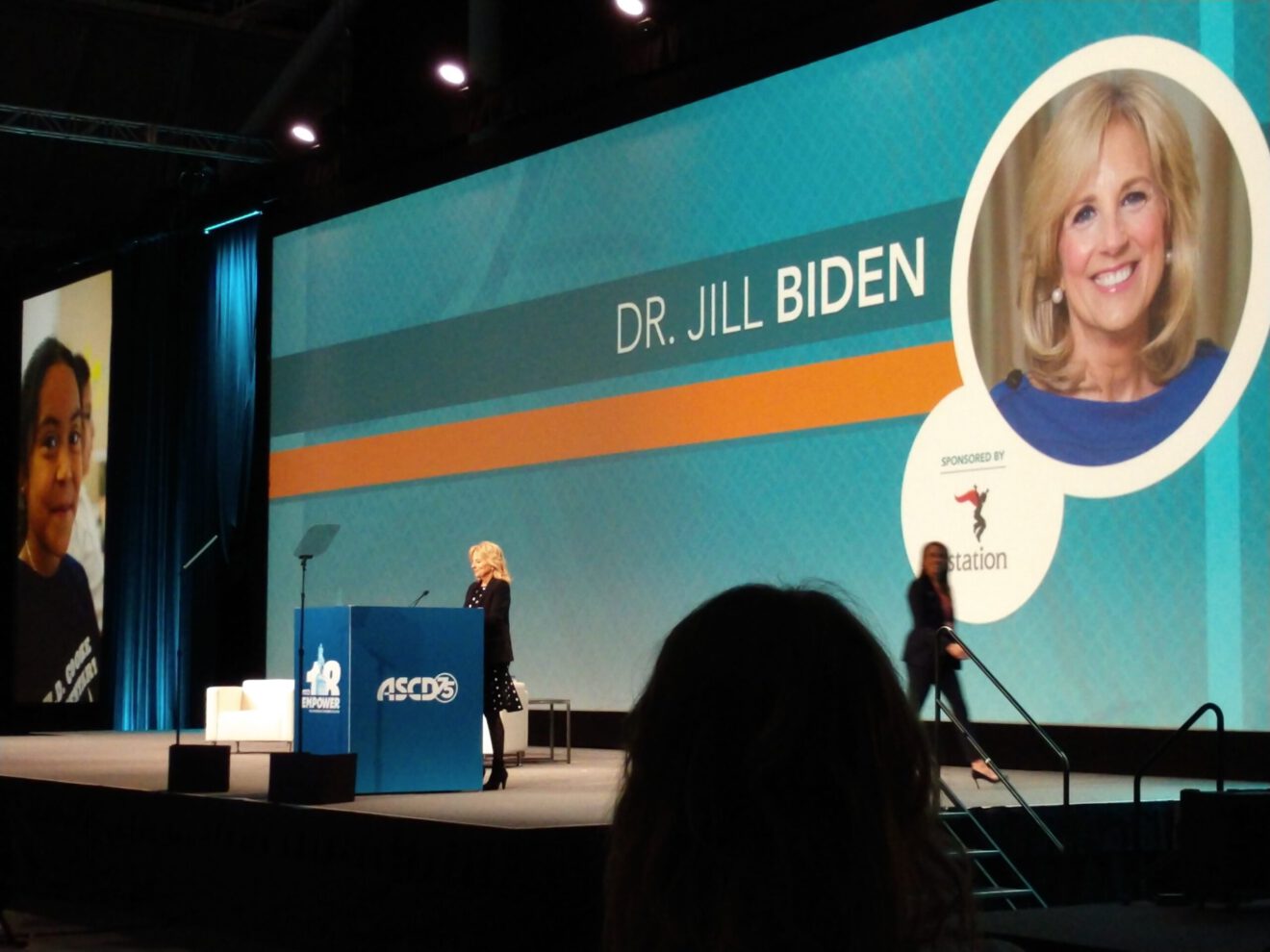Educators from around the globe have congregated in Boston this week to participate in ASCD’s Empower 2018 show and conference. SmartBrief Education editors are reporting from the event. Read on for takeaways from the first day of the conference.
Support students in poverty with caring relationships. Authors Kathleen Budge and William Parrett of the Center for School Improvement and Policy Studies at Boise State University explained the importance of creating strong relationships between teachers and students as one of the strategies they’ve identified for combating the effects of poverty on students. “What we know is that a strong relationship between a teacher and a student does three things: It increases student engagement, it promotes resiliency in kids and it improves academic achievement,” Budge said.
Remember that who you are matters. During the Q&A portion of Saturday’s general session featuring educator and former second lady Jill Biden, Paul Tritter, director of professional learning for the Boston Teachers’ Union, explained that his first mentor as an educator focused on reminding teachers that their identities matter. “I carry that with me very closely,” he said. “Your identity matters. Who you are matters. When you show up at school each day, when you work with the people that you work with each day, you don’t leave who you are at the door.”
Prioritize academic focus for students with challenges. When it comes to working with at-risk students, effective teachers place high importance on academic focus, say education professors Leslie Grant, James Stronge and education researcher Xianxuan Xu of Stronge & Associates Educational Consulting. The trio shared findings from their research of high-achieving teachers in the US and China. Academic focus is one component of a three-tiered approach aimed at addressing the needs of students with challenges. “Academic means focusing on academic achievement,” says Stronge. “Never let down on the needs of that kid—always hold high expectations. No excuses. Always be working toward the academic progress of each student. It’s understanding the kids first. You don’t teach classes; you teach students, one at a time.”
Teach students to be entrepreneurs. An afternoon learning session had Donald Wettrick of StartEdUp Innovation and Jamal Crook of Hillsborough County Schools describing a framework for bringing innovation to classrooms and developing students’ entrepreneurship skills. The process starts on Mondays, Wettrick explained, when students are tasked with identifying a problem to solve through a brainstorming exercise. By the end of the process, students will choose their best idea by considering whether it will be something they are passionate about, which skills it will help them develop and whether it will help serve others.
Understand that engagement outweighs instruction. “Unless you have kids engaged, I don’t care how good you think your instruction is,” says Stronge. “It’s not just about what the teacher does—it’s about what the kid does too.” Stronge points out the difference in how American and Chinese schools treat engagement. In China students come to school ready to learn. In America, though, it’s the teachers job to engage the class. “Wouldn’t it be nice to have students show up in class, ready to learn?” Stronge asks. He explains that in China parents know education is the key to a better life. “The way to escape poverty is through education,” Stronge says. “And that’s what parents believe.”
Be agile and ready to think on your feet. Teaching has changed over the last two decades, says Vanessa Elliott, a science and STEM educator with SEED Public Charter School in Washington DC. Effective teachers need to be nimble as their roles change. “As teachers across the nation and the world, we deal with a lot,” says Elliott. “Teaching today has evolved since when I started teaching 20 years ago. It used to be teaching content to now, I have to help you with your social-emotional learning and hygiene. I have to take off my teacher cap and put on my mom cap and then my counselor cap.”
Elliott’s words echo the message delivered by Biden during her opening keynote address. “What I admire about teachers is their ability to use every talent, every skills, every tool to make a difference,” Biden says. “Educators find a way to lead through the chaos. We have to think on our feet.”
Kanoe Namahoe and Katharine Haber are editors with SmartBrief Education.
____________________________________
This “most read” feature reflects the most read items in ASCD SmartBrief from the previous week. Sign up for ASCD SmartBrief to get news like this in your inbox, or check out all of SmartBrief’s education newsletters, covering career and technical education, educational leadership, math education and more.
